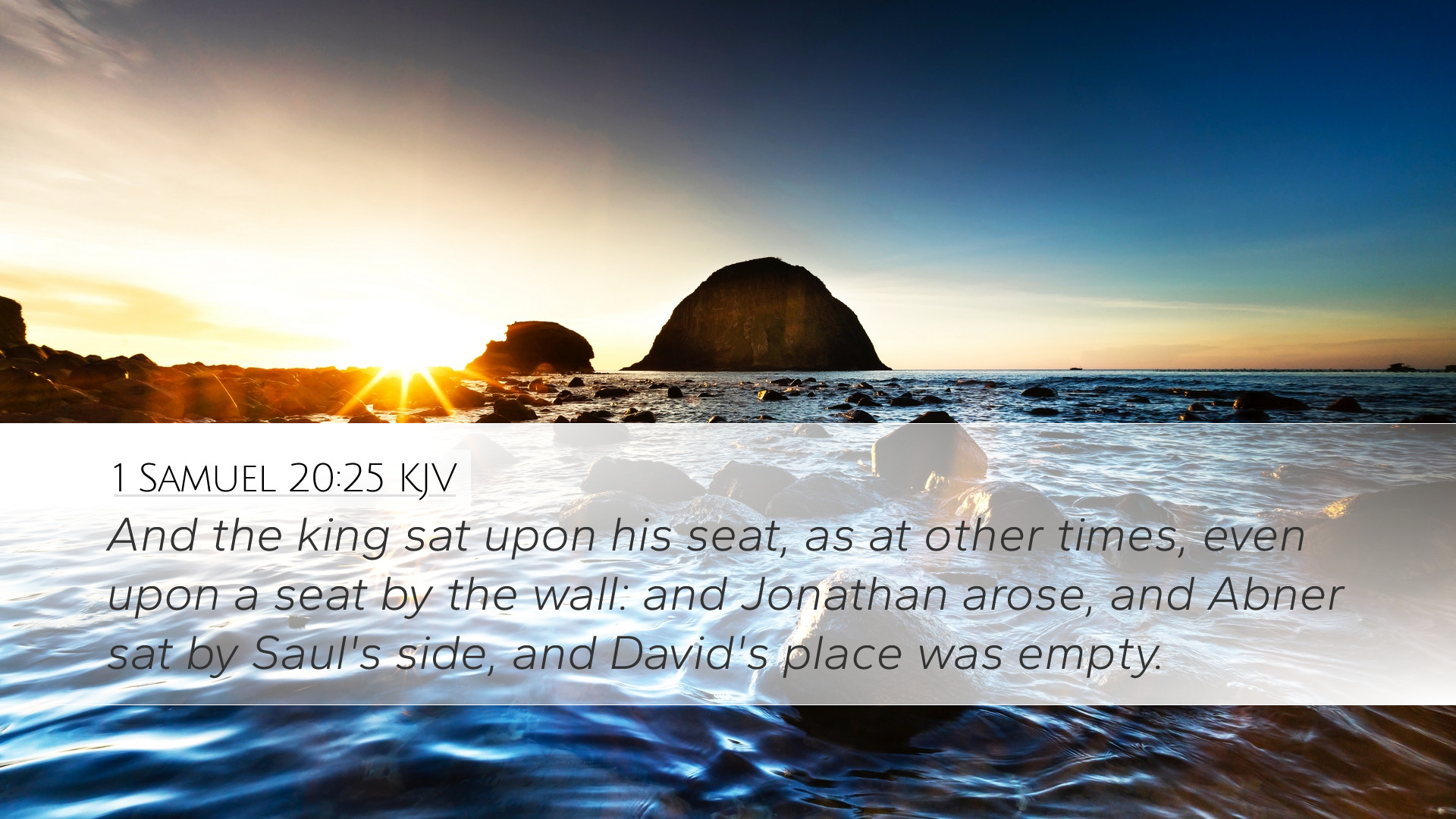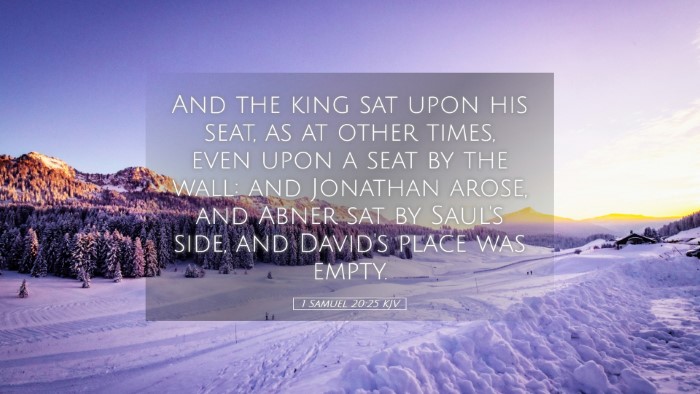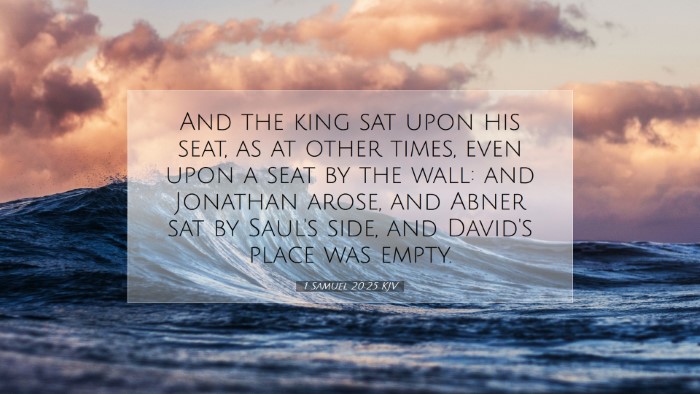Commentary on 1 Samuel 20:25
Verse Context: 1 Samuel 20:25 states: "And the king sat upon his seat, as at other times, even upon a seat by the wall: and Jonathan arose, and went in, and sat by the king." This verse occurs during a pivotal moment in the narrative between David, Saul, and Jonathan, highlighting the developing tension in Saul's heart towards David, as well as the loyalty of Jonathan.
Overview of the Verse
This verse illustrates a significant interaction in the dynamics of the relationship between the three key figures—David, Saul, and Jonathan. It reveals Saul's continued outward demeanor of normalcy while inwardly harboring animosity towards David. Jonathan's introduction into this scenario brings a layer of complexity, as he navigates the treacherous waters of loyalty to his friend David while remaining connected to his father, King Saul.
Commentary Insights
Matthew Henry Commentary: Matthew Henry notes the symbolism of the seat that Saul occupies. The king's seat by the wall suggests a sense of security or isolation. Just as the wall provides physical support, it can also metaphorically indicate Saul's misguided reliance on his power and position. Henry emphasizes Jonathan's internal conflict as he feels the weight of his father's growing enmity towards David. The narrative of Jonathan’s loyalty is critical, showcasing the tension between familial obligation and friendship.
Albert Barnes Commentary: Albert Barnes provides a comprehensive analysis of the societal customs reflected in the verse. He elaborates on the customs of royal seating arrangements, where positioning often signifies favor or disfavor. Barnes points out that Saul's position places him in a posture that is both formal and strategic; it underscores the role of appearances in royal court life. Furthermore, Jonathan’s action of rising and taking his place beside Saul shows his balance between allegiance to his father and his unseen bond with David. The tension is palpable, suggesting that Jonathan is aware of a potential conflict brewing within his family ties.
Adam Clarke Commentary: Adam Clarke sheds light on the ritualistic aspect of sitting arrangements in the royal court. He explains that Jonathan's movement into the presence of the king symbolizes not only his allegiance to Saul but also the internal struggle to uphold the truth of his friendship with David. Clarke highlights that the act of entering and sitting signifies Jonathan’s role as the mediator—torn yet seeking peace. He interprets this scene as a reflection of the broader conflict between worldly power and divine purpose, where Jonathan is positioned to witness the tragic unfolding of Saul's jealousy.
- Loyalty and Kingship: The text emphasizes contrasting loyalties—Jonathan embodies loyalty to David despite his allegiance to Saul.
- Symbolism of Sitting: The act of sitting and the location of the seat can reflect one's status and intent; this adds depth to the narrative.
- Appearance vs. Reality: Saul’s calm exterior conceals his turbulent inner life, reflecting how leadership often involves a facade of control.
- The Role of Mediator: Jonathan as a peacemaker illustrates the tension of his dual roles and foreshadows the struggle to come.
Theological Implications
The verse carries significant theological themes that resonate through the rest of the biblical narrative. It raises questions about the nature of kingship, loyalty, and the complexities of human relationships—particularly surrounding power dynamics. It serves as a precursor to the eventual downfall of Saul and the rise of David, emphasizing the implications of jealousy and moral decay stemming from Saul’s actions.
Personal Reflection for Leaders and Scholars
For pastors, students, and theologians, this passage emphasizes the importance of discerning the nature of loyalty in their ministries. It encourages reflection upon the challenges of remaining steadfast in one’s commitments while navigating personal and communal relationships. It also invites leaders to consider how the psychological and emotional struggles of their predecessors can offer insight into contemporary leadership dilemmas.
Conclusion
The interplay of human relationships in 1 Samuel 20:25 serves as a poignant reminder of the complexities faced in the ministry of leadership. This verse invites readers to ponder the implications of their actions and relationships, as well as the weight of their commitments—both to God and to one another. The commentary from Henry, Barnes, and Clarke enriches this understanding and encourages ongoing study of the rich narratives woven throughout Scripture.


